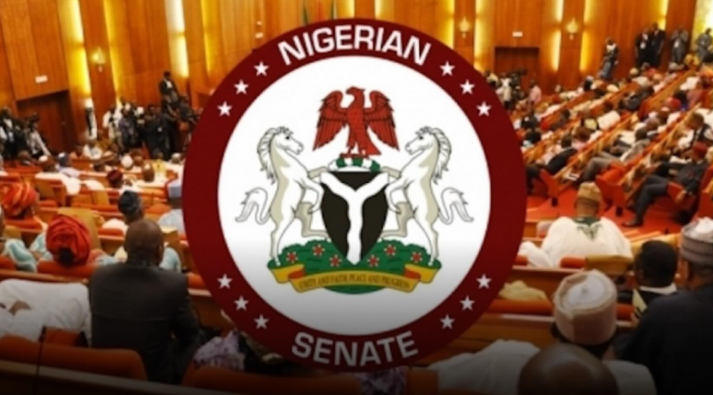

Former Nigerian President Goodluck Jonathan has found himself at the centre of a fast-unfolding political crisis in Guinea-Bissau, where a dramatic military coup has left dozens of African leaders, diplomats, and election observers stranded. Jonathan, who arrived in the country as part of the joint African Union (AU), ECOWAS, and West African Elders Forum (WAEF) observer mission, had been expected to conclude his oversight duties following Sunday’s presidential election. Instead, he and 35 others are now caught in a tense and unpredictable standoff after soldiers seized control of the tiny West African nation on Wednesday.
What began as a routine democratic process quickly descended into chaos when the military abruptly suspended the electoral process, citing what they described as a “national emergency” triggered by competing declarations of victory. President Umaro Sissoco Embaló, seeking re-election, and his main rival Fernando Dias each proclaimed themselves winners—even as the electoral commission maintained that official results had not been released. Their duelling announcements created a political vacuum that the military swiftly moved to fill, plunging the country into uncertainty and effectively trapping international observers who had travelled to ensure a transparent and credible vote.
Goodluck Jonathan, known across the continent for his peacebuilding efforts and diplomatic engagements, had been leading the delegation tasked with monitoring the fairness of the election. The mission, comprising 36 high-profile individuals representing regional organisations, was still compiling preliminary assessments when heavily armed soldiers stormed key government buildings in the capital, Bissau. According to sources on the ground, the military sealed off major roads, shut down communication networks, and stationed personnel around hotels housing foreign dignitaries, effectively restricting their movement.
Eyewitness accounts suggest that the coup unfolded with alarming precision. Soldiers loyal to the military command reportedly took over the national radio and television stations before moving to arrest top government officials. While there have been no confirmed reports of violence against foreign nationals, the presence of the election observers has added a complex diplomatic layer to an already volatile situation. International teams, including Jonathan’s delegation, are believed to be in secure locations, but fears are growing as negotiations for their safe evacuation remain uncertain.
Jonathan's presence has drawn significant attention not only because of his stature as a former president but also because of his role as a respected statesman in West Africa’s ongoing battle against democratic backsliding. Over the years, he has spearheaded several peace missions across the region and has become a key figure in efforts to stabilise nations facing political unrest. His unexpected entanglement in Guinea-Bissau's political meltdown has sparked widespread concern, particularly in Nigeria, where discussions about his safety have dominated social media and political circles.
The timing of the coup has raised broader questions about the fragility of democratic processes in West Africa, a region that has witnessed a troubling resurgence of military interventions in recent years. Guinea-Bissau itself is no stranger to political turmoil—having suffered numerous coups, attempted coups, and constitutional crises since gaining independence from Portugal in 1974. But the presence of such a high-powered delegation during this latest upheaval has magnified the international implications of the incident.
Reports filtering through suggest that tensions began escalating late Tuesday night when it became apparent that disagreements over election results could spiral out of control. Supporters of both Embaló and Dias reportedly took to the streets, leading to clashes and heightened security concerns. By early Wednesday, soldiers aligned with senior military officers had moved to dissolve civilian authority, claiming to act in the interest of national stability. The army’s spokesperson accused political leaders of plunging the country toward conflict, arguing that intervention was necessary to “prevent bloodshed.”
The AU, ECOWAS, and WAEF have all condemned the military takeover, calling for the immediate restoration of constitutional order. Diplomatic channels are being activated to engage the coup leaders, but with communication lines disrupted and political structures dismantled, securing the release and safe movement of international observers remains complex. ECOWAS, which has intervened militarily in past regional crises, is reportedly assessing the severity of the situation and considering next steps.
Nigerian authorities are said to be closely monitoring developments, with insiders revealing that contingency plans are being drafted should evacuation become necessary. The Nigerian Ministry of Foreign Affairs has expressed deep concern about Jonathan’s situation but assured the public that diplomatic efforts are ongoing. Meanwhile, anxious supporters and political allies have continued to urge for swift action to ensure the well-being of the former president and other trapped observers.
On the streets of Bissau, the atmosphere is described as tense but relatively calm. Shops remain closed, and residents are staying indoors as uncertainty looms. Armed checkpoints have been erected across the city, and the sound of military vehicles patrolling major routes has become constant. While there have been no immediate reports of widespread violence, fear of escalation is palpable.
International observers trapped in Guinea-Bissau, including Jonathan, are said to be in good condition, though movement restrictions and communication barriers have limited direct contact with the outside world. Organisations involved in the election monitoring mission have issued cautious statements, emphasising the need for diplomacy and urging the military to guarantee the safety of all foreign nationals.
As the world watches, the unfolding events in Guinea-Bissau are fast becoming a test of West Africa’s resolve to defend democratic institutions. For Jonathan and the other stranded dignitaries, the ordeal underscores the unpredictable nature of political missions in regions with fragile governance. While their immediate priority is safety, their eventual return may carry significant weight in shaping regional responses to the worrying pattern of military coups across the continent.
For now, the uncertainty continues, with diplomatic efforts intensifying behind the scenes. The fate of Guinea-Bissau hangs in the balance, and with it, the safety of one of Africa’s most respected statesmen. The global community remains on edge as it awaits clarity on the next steps in a rapidly evolving crisis.


